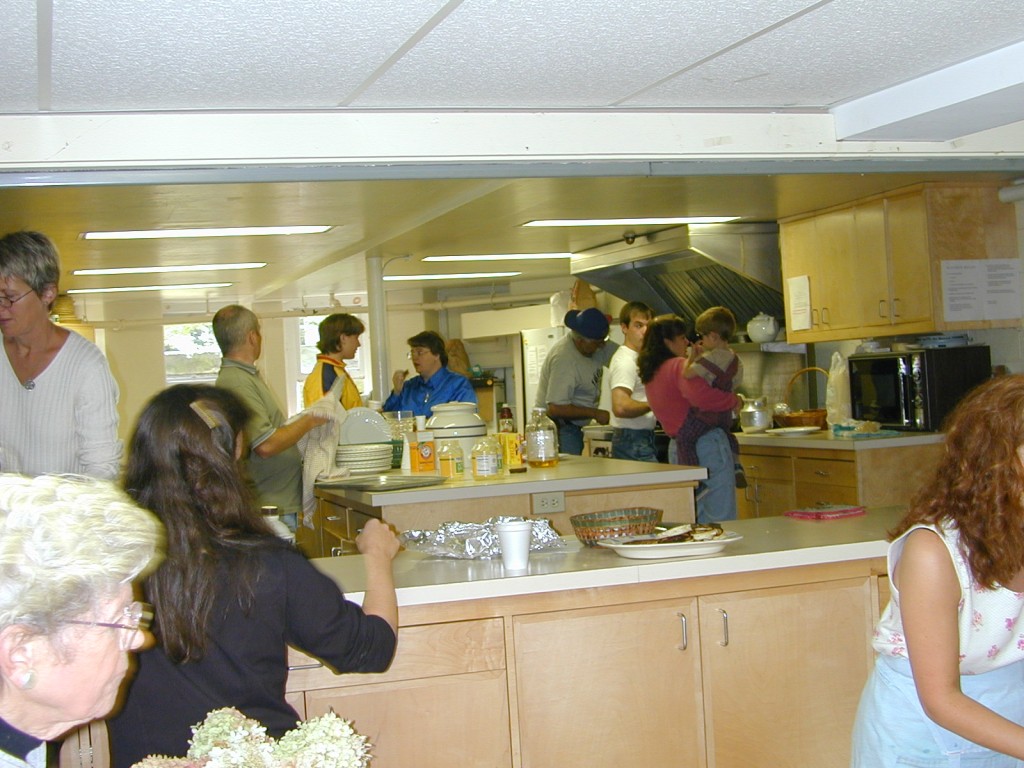We evolved as a social species. I’ve outlined why that is so when I wrote Systems out of Balance; I spoke and sang about what that means when Cindy and I walked across the country. Abundant evidence reveals that social networks are important for our overall health, not just brain health. The challenge for me as a caregiver is to find ways to make that happen for both Cindy and me in the context of a rural town.
Living in the village center of Norfolk actually provides an advantage for socializing with neighbors and friends, simply because we get to know everyone in this small town setting. Indeed, that is why we live here. Yet even in such an intimate setting you cannot count on people dropping in regularly on someone with dementia. Part of the reason is because even in a rural town our society creates busy lives. Another reason is many people would feel awkward visiting.
Since our return in November I’ve made an open invitation for anyone and everyone to drop in on us. To date we’ve had four visitations; two of the them by our old friends at the Bruderhof who are now located in New York. To get more visitors I know I will need to be more proactive. I’m working on slideshows of our hikes for guests that we will invite over. This will serve the dual purpose of providing a means to socialize and to reinforce Cindy’s memories of being an Expedition Woman.
Beyond family and friends there are a variety of social settings one could consider for getting there socializing fix. Here’s a list of settings we have done or are considering.
Hospital – Some hospitals have programs where someone with a disability can hold an infant or child with medical problems and in need of human contact, programs that provide mutual benefits.
Day Care – We started out helping at a day care. Unfortunately, there are hurdles involved in helping out at licensed day cares, along with the hotbed of germs encountered. I recently offered to read the Wizard of Oz series to our neighbor’s kids. Cindy enjoys listening to me read, an intimate form of socializing between caregiver and patient as well.
Primary School – Both Cindy and I have volunteered for our local school in the past. I’m e plowing ways for us to volunteer together in the future.
Community Center – Most places have some type of community center with programming for their diverse constituents. In Norfolk this “community center” is otherwise known as the library. Seek out the corollary to a community center in your town.
Senior Center – We have senior residential housing in Norfolk, called Meadowbrook. They occasionally offer everything from concerts to ice cream socials.
Church – Since I go to church early Sunday mornings for choir practice our kind neighbors across the street, the Whites, pick Cindy up and brings her along with them, providing a double dose of socializing.
Service Organizations – Cindy and I once volunteered for the Open Door, a soup kitchen located in nearby Winsted. I need to e possibilities of us volunteering together here, but I’m sure I can make it happen.
Animal Shelter – There is an animal shelter in nearby Cornwall called the Little Guild that goes the extra mile in caring for their charges until they are adopted. This was an idea recently suggested to me and I am eager to test it out.
Home Care – Before we left or the PCT hike last June we were receiving about six hours of home care each week from two different agencies, CHORE and WCAAA. Cindy very much enjoyed the time fraternizing with the people who came over, with the extra benefits of floors vacuumed and meals cooked.
Home care is the traditional means of providing extra social contact for the infirmed and elderly, but as you can see this need not be the only means. Try a few of these means of socializing for your health, even if everyone is perfectly healthy in your home.


Hi Kirk & Cindy,
Hope you are able to fill your time with many of the wonderful things you’ve presented here.
Food for thought…….I am enrolled with an online program called Luminosity. Though its an interactive computer site it wont help much with socialization but is is great for brain health, it might be fun for you and Cindy to work on it together.
Please give Cindy a hug from me and remind her that we will continue our photo album organization when I return home in the warmer weather.
Love Kim
Thanks Kim, though you might be interested to know that a group of leading scientists in the field of brain health got together a letter that challenged the claims of luminosity and other brain puzzles. Clinical replication never produced the same results. The scientists suggest that what happens with brain puzzles is people get better at doing brain puzzles, but that does not necessarily mean greater health. They suggest instead that people should always be involved in learning new things that they can be enthused about. This could, in fact, include brain puzzles if that brings you joy.
Oh, and actually do have luminosity … because I enjoy it at times.